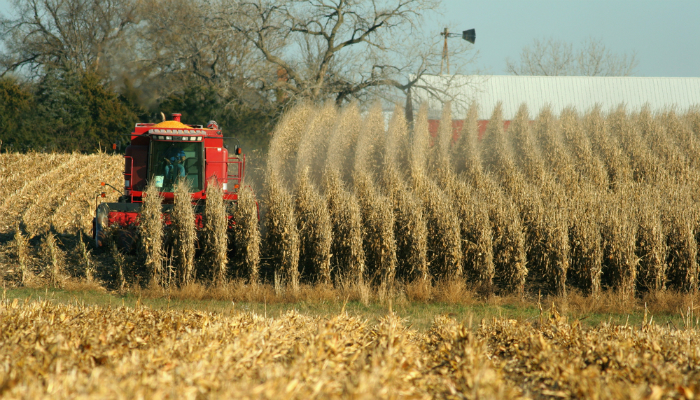
The sharing economy is disrupting many industries. Agriculture is no exception.
Today Kansas City-based FarmLink officially launched MachineryLink Sharing, the agriculture industry’s first Internet-based equipment sharing program. The platform has been in a beta-test, soft launch of sorts as of the last few months, according to Jeff Dema, president of grower services at FarmLink, receiving critical feedback from its users.
The program itself is straightforward. Farmers looking to rent out their equipment can put information as well as a picture of the specific tool on the site. From there, other farmers looking to rent can request the tool for a given date. Owners have the ability to approve or deny the rental and manage their booking, and transportation and billing can be arranged through the site.
As in other sharing economy platforms, the owner of the equipment can set the price. Once a transaction has been completed, FarmLink collects 15% from the total transaction price, which is split from both the owner and the renter.
BECOME A SPONSOR
Join us in championing the narrative of success, resilience, and ingenuity that defines Nebraska’s startup community. Learn more »
Currently, the platform is just through the website. But the company plans to release a mobile application within the coming 60 to 90 days.
Commodity slump may drive adoption
The creation of MachineryLink Sharing was due to a perfect storm of sorts, according to Dema. For starters, many industries have been fundamentally transformed by the sharing economy.
“We’ve paid attention to how AirBnb and Uber have fundamentally reshaped the economy,” Dema said. “Why can’t it happen to agriculture?”
“If you can move combines around, you can pretty much move anything around”
In fact, the sharing economy was particularly destined to hit the agriculture industry. According to the USDA’s Ag Census in 2012, farmers own about $244 billion in farming and machine equipment. But since farm production usually happens on a seasonal basis, equipment often sits idle for most of the year.
Moreover, the economics of farming have grown more difficult as of late. A downturn in commodities prices, higher equipment costs and changes to the tax code have cut into profit margins. Farmers will be able to cut down significantly on costs by increasing their equipment’s utilization rate by renting it out.
Overcoming sentimental attachments
MachineryLink Sharing is just one small (at least for now) component of a 16-year old company started by the former CEO of Sprint Wireless. The company’s first product was simply MachineryLink, a suite of services giving farmers and agriculture retailers a platform for equipment leasing.
“If you can move combines around, you can pretty much move anything around,” Dema said as a reason why FarmLink was suited to get into the sharing economy business.
Later in its history, the company released a pair of advanced analytics platforms, first FarmLink Analytical Solutions and later TrueHarvest. Long term, Dema said the company might consider using the equipment rented out to gain insights for its analytics platforms, although that isn’t in the works currently.
One challenge to the business, which Dema acknowledged, is that people often have sentimental attachments to their farm equipment. However, due to the economic pressures that farmers have experienced of late, he believes that attachment may not hold water forever.
“Some people will still hold on to that idea of ownership, although as more people use our service, we think that people will view it as a more efficient alternative,” Dema said. “We think people would rather have an emotional attachment to their bank account.”
—
Samuel Weigley is a freelance writer living in St. Louis, where he was born and raised. Before moving back to his hometown, he spent two years living in New York writing for several different business publications. His work has appeared in the Wall Street Journal, Bloomberg, The Huffington Post, Yahoo Finance and USA Today, among many others.




One response to “MachineryLink Sharing brings the sharing economy to the farm”
[…] https://spnewsnjt.wpengine.com/2015/10/machinerylink-sharing-brings-the-sharing-economy-to-the-farm/ […]